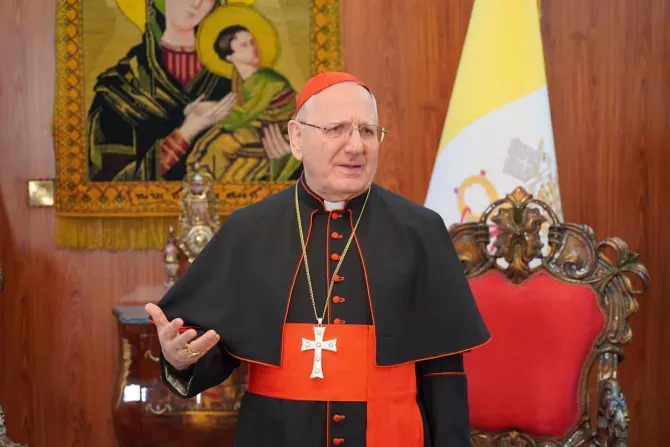In a July 10 letter to the president, Sako said that he is appealing the decree’s revocation to Iraq’s judiciary. Sako told Rashid: “I believe the legal advice that was given to Your Excellency is incorrect and it wanted to undermine your stature and the Christian component.”
The Chaldean bishops in the U.S., Europe, and Asia issued a letter of their own on Monday urging Rashid to reverse his decision.
“Enough of this injustice against us and the injustice against this afflicted people and the plundered Iraq,” the bishops said. “We insistently demand that you cancel the decision to withdraw the Republican Decree from His Beatitude Patriarch Cardinal Louis Sako, who is well known in Iraq and internationally for his integrity and patriotism, around whom we all gather like a strong wall, and we do not back down from defending his rights and the rights of the sons of our suffering Church and its plundered endowments no matter what. It cost us. We consider this decision of yours to be ill-considered and irresponsible, and it has proven to be disgraceful to our dignity.”
The letter was signed by American Chaldean Bishops Francis Qalabat of Detroit and Emmanuel Shalita of California.
This is the latest development in an ongoing conflict between Sako and Kildani, who is known as “Rayan the Chaldean.” Kildani is a Christian Iraqi lawmaker and leader of the paramilitary group the “Babylon Brigades.”
(Story continues below)
In his letter, Sako accused Kildani of extorting Christians in the Nineveh Plains.
“We have been suffering tremendously from the absence of any deterrent force against Babylon, as well as the government’s silence, followed by the unfair decision of the president’s in withdrawing the Republican Decree (147), an unprecedented [move] in Iraqi history,” Sako wrote.
In 2019, the U.S. Department of the Treasury sanctioned Kildani because he was engaged in “serious human rights abuses” in his capacity as head of a paramilitary group.
According to the Treasury Department, Kildani’s group “illegally seized and sold agricultural land” and “the local population has accused the group of intimidation, extortion, and harassment of women.” A video was circulated among human rights groups showing Kildani cutting off the ear of a handcuffed detainee, the Treasury Department’s report said.
According to reporting by ACI Mena, CNA’s Middle East and North Africa news partner, Sako has also accused Kildani of seizing Christian seats in the Iraqi Parliament without real representation for Christians.
Kildani has taken Sako to court for slander. The proceedings are ongoing.








